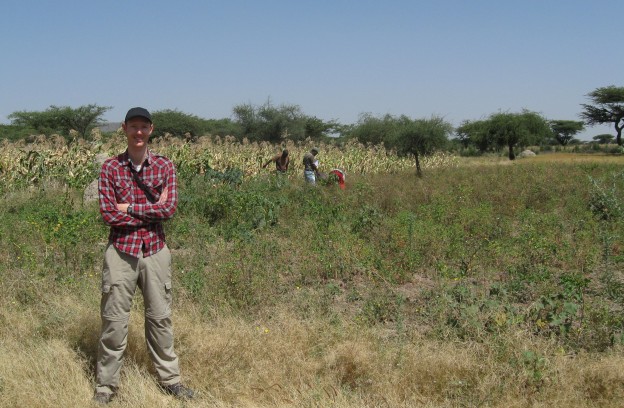Capacity building within local organisations: an insiders perspective from Ethiopia
Adrian Young is volunteering at the Forestry Research Center of the Ethiopian Institute of Agricultural Research as part of the Australian Volunteers for International Development program. In this position he is working with the Centre’s Trees for Food Security project. Read about his experiences in Ethiopia.
Capacity Building within local organisations: an insider perspective from Ethiopia
By Adrian Young
The task of building the capacity of a local organisation in Ethiopia can often seem overwhelming. The limited availability of resources, the lack of basic ICT infrastructure that one takes for granted in Australia, and the lack of secure and stable access to basic services such as electricity, water and sanitation pose numerous challenges to the capacity building goals assigned to AVID volunteers. However, this is not to say that these challenges and issues are insurmountable. But it does require patience, perseverance, acceptance and creativity to successfully overcome them.
For 12 months I am based at the Forestry Research Center at the Ethiopian Institute of Agriculture Research, which is a government research organisation that reports to the national Minister of Agriculture and is part of a large and multi-level agricultural research system in Ethiopia.
The capacity building objectives of my volunteer assignment are quite diverse. But essentially, the high-level goal is to improve information and knowledge management systems and processes within the Forestry Research Center. This includes developing a data management system for the national tree seed center, enhancing knowledge management and communication processes across the Center’s research programs, and assisting with the design and implementation of some individual research projects. In addition, I am also supporting some monitoring and evaluation activities for the Trees for Food Security project, which is funded through the AIFSRC.
As outlined in the opening paragraph, there are a number of barriers to the successful realisation of these capacity building objectives. For example, the development of a data management system for the national tree seed center may seem relatively straight-forward. However, it must be designed to be compatible with the available ICT infrastructure within the Forestry Research Center. Moreover, the successful integration of a computerised data management system within the existing business practices of the organisation is where the real challenge lies. This requires training staff not only how to use the data management system, but how to manage and maintain it effectively so that it continues to function into the future. And in an organisation where most record keeping is still done on hardcopy, this represents quite a fundamental shift in practice for the staff involved in managing the national tree seed center.
Within such a context, the approach I have adopted for the design and implementation of the data management system is one that seeks to be flexible and adaptable. This means starting small and testing out what works and what doesn’t work before establishing a finished product. It also means seeking regular feedback from key stakeholders within the organisation to ensure it will fulfil their requirements and that they are confident they can use and manage the final product. Moreover, it means looking at international best practices for guidance but then adapting them as required to fit the local organisational context.
In many ways, the challenges and considerations associated with this data management system can be viewed as a microcosm of the challenges associated with development more broadly. Particularly when it comes to improving the performance of agricultural and food production systems where there are a complex range of factors that influence the dynamics and outcomes of these systems. The Trees for Food Security project is a good example of a more adaptive approach in practice, as is it testing a range of different agroforestry techniques and extension methods in Ethiopia, Rwanda, Uganda and Burundi to see what works best in the local conditions before looking to scale them up.
Of course this does not guarantee successful outcomes, and patience, perseverance and creativity will be most likely remain indispensable.
Adrian can be contacted at: [email protected]

